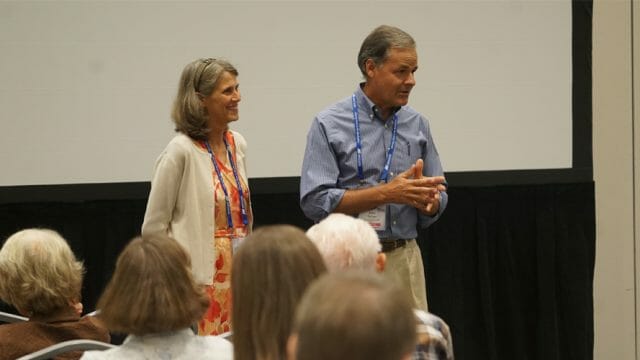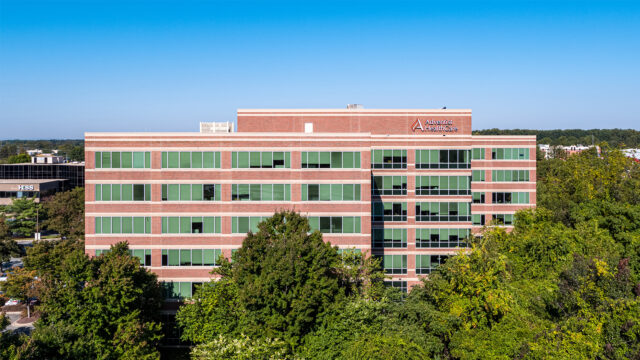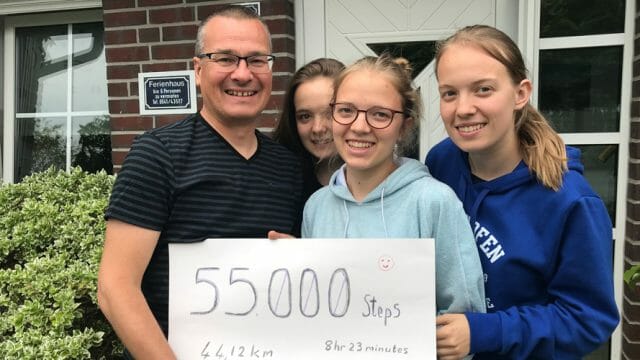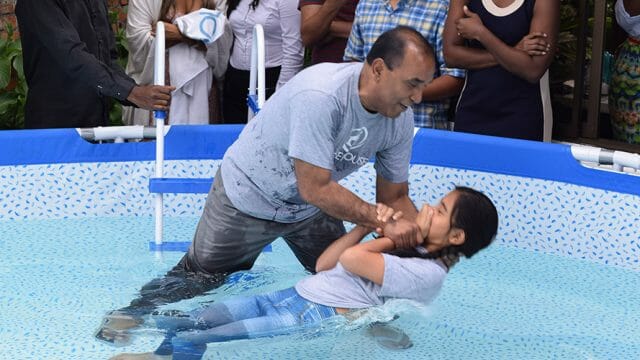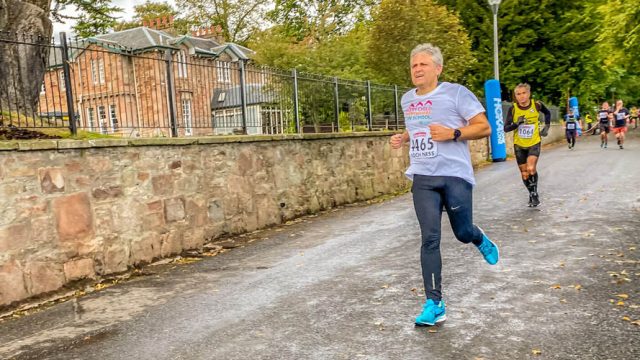Physical therapy students transition to an entirely online format.
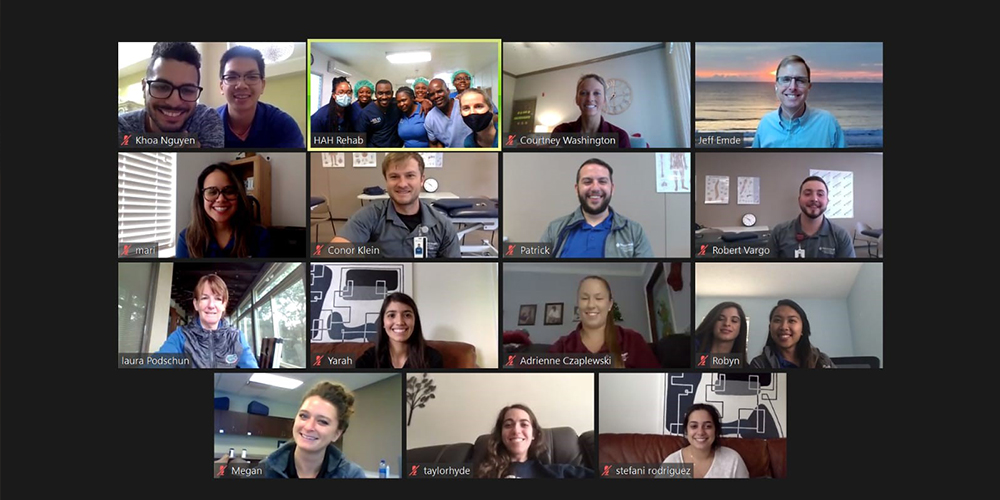
Irma Henry, director of physical therapy at Haiti Adventist Hospital (HAH) in Port-au-Prince, looked at the technicians seated around her and then at the screen of a mobile device to see the students looking back at her from another country. Her virtual audience included physical therapy students and faculty of AdventHealth University (AHU) in Orlando, Florida, United States, who transformed their mission and training trip to an online format due to the COVID-19 pandemic.
The Department of Physical Therapy at AHU organizes an annual overseas mission trip to incorporate an international service-learning component into the curriculum. Students and faculty have traveled to HAH on past trips. When the pandemic hit in 2020, faculty members decided that a virtual mission and training trip would be an alternative way to strengthen the relationship between the two institutions. AdventHealth Global Missions served as the connector between AHU and HAH for the opportunity in December 2020.
“The first day was reserved for introductions,” Henry said, “and we had some of the local physical therapists and physical therapy students in Haiti share their experience.”
Henry reviewed with the students the current ratio of physical therapists compared with the population in Haiti, demonstrating the great need for the profession. Many people in Haiti don’t realize they can see a physical therapist for specific injuries and conditions. While some doctors will refer patients to a physical therapist, often the local people seek healers who use spiritual means and home remedies. Yarah Lugo Caballero, a third-year physical therapy student at AHU, said she learned that only about 30 PT professionals provide care for a population of 10 million people. Even with these staggering numbers, the hospital continues to educate the community and – through the virtual mission trip – AHU students that there is hope for the field.
During the training that took place through video conference, students were split into four groups and assigned to a hospital patient and specific topic or condition. The team at HAH used a communication cart donated by AdventHealth Global Missions with a mobile device attachment to allow the virtual audience to see the patients and the inner workings of the hospital.
“It was interesting to see the different techniques used at the hospital in Haiti,” Lugo Caballero said. “I loved how interactive they were with us. That was inspiring. We learned as much from them as we were able to share.”
Day two was presentation day. In addition to hearing a limb-lengthening specialist share his expertise, students virtually toured the facility’s orthopedic clinic. Local parents are often lined up along the clinic walls with their children and babies, seeking care for conditions like clubfoot, a common congenital disability in Haiti, in which the foot is slightly curved inward.
“I feel like this virtual experience renewed my fervor for physical therapy,” Henry said. “I was excited to meet with like-minded individuals who may develop a passion for the mission field even if they remain in the U.S. after [they finish school]. But no matter where they go in the world, I think it’s exciting they carry the same passion for PT.”
On the final day of the mission trip, students interacted with patients through Henry’s translation and concluded with the patient assessments from earlier in the week. The students and technicians at the hospital reviewed the patient assessments and helped identify possible treatment options.
AHU students learned in the final session that the HAH team sometimes has to find creative ways to care for patients due to limited supplies or because they may utilize equipment from other areas such as the operating room. They also learned the role physical therapy plays in restoring economic independence for Haiti’s street vendors when they are injured. The vendors rely on their work to support their families. The students discussed ways that AHU could offer additional support from hundreds of miles away.
“I think that we are most profoundly impacted by the change that the patients see in themselves,” Henry said. “Many of the street vendors who come to see us believe they will never walk again, even though it’s important that they do so for their job and their family. After physical therapy, however, they have an independence that they could only have imagined. These transformations are so powerful!”


